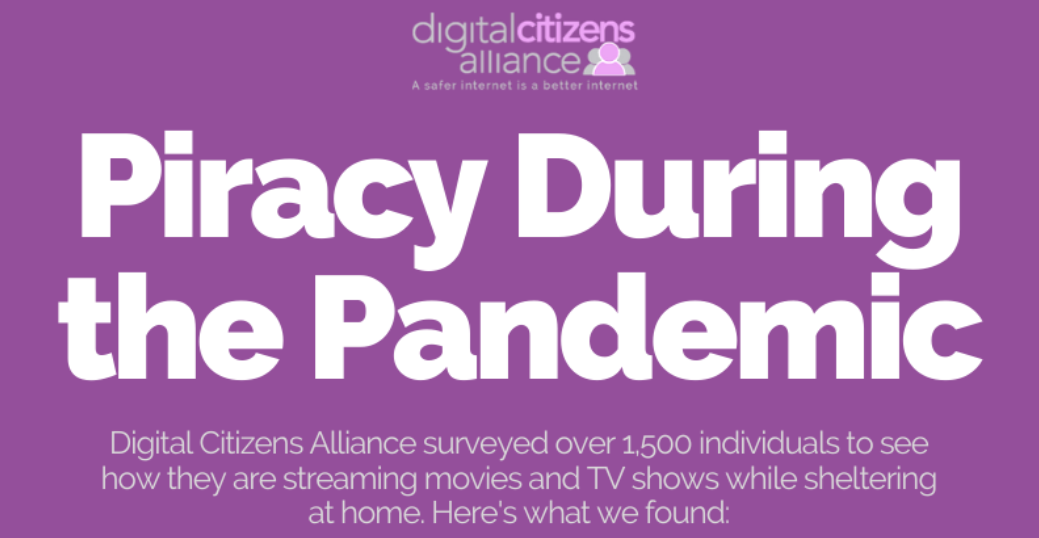Pandemic Highlights Danger of Video Piracy
CDA points out that devices are delivering malware as well as video

The smarter way to stay on top of the multichannel video marketplace. Sign up below.
You are now subscribed
Your newsletter sign-up was successful
More than one in 10 people (13%) have a video piracy device at home and, of those, 40% say it is their primary source of TV and movies.
That’s according to a new survey by the Digital Citizens Alliance, which found that 70% of respondents are watching more TV than usual during the pandemic, a number that jumps to 80% of those with pirated devices, which increases the chances that their computers and home networks can be breached by bad actors. To that point, one in four users of piracy devices reported a malware problem during the pandemic (over the past three months).
RELATED: Pew Says Internet Has Been Essential During Pandemic
The DCA points out that cybersecurity is even more important in a sheltering-in-place world where activities from video streaming to studying to working are online, and that piracy can wind up abetting other malicious activity.
That is because piracy devices — such as a "Kodi" box or jail-broken Fire TV Stick —are three times as likely to deliver not only pirated content but malware such as viruses, ransomware or spyware into the home, DCA said.
[T]his is a period when all of us need to find ways to be less vulnerable. Eliminating reliance on piracy sites and apps is one of the easiest ways to improve online security," it said.
The DCA has some handy tips:
The smarter way to stay on top of the multichannel video marketplace. Sign up below.
1.) "Use apps that are licensed to sell or rent movies. If the app isn’t on Apple’s App Store or Google Play, that should be a red flag. However, even the app stores aren’t perfect;"
2.) "Avoid knockoffs and copycats. There’s a big difference between Netflix and “Free Netflix” — and on that note;
3.) "Free comes with a high cost. The classic adage applies here: ‘If you are not paying for the product, you are the product.’ While you may get a movie, but you give up personal identifiable information and perhaps even control of your device. The cost outweighs the rewards."
Survey Monkey conducted the online poll May 8-9 among 1,512 U.S. consumers 18-plus. The margin of error is plus or minus 3%.
DCA is a Washington, D.C.-based nonprofit focused on educating the public about malware, piracy, online drug sales and other threats to good digital citizenship and citizens.
Contributing editor John Eggerton has been an editor and/or writer on media regulation, legislation and policy for over four decades, including covering the FCC, FTC, Congress, the major media trade associations, and the federal courts. In addition to Multichannel News and Broadcasting + Cable, his work has appeared in Radio World, TV Technology, TV Fax, This Week in Consumer Electronics, Variety and the Encyclopedia Britannica.

